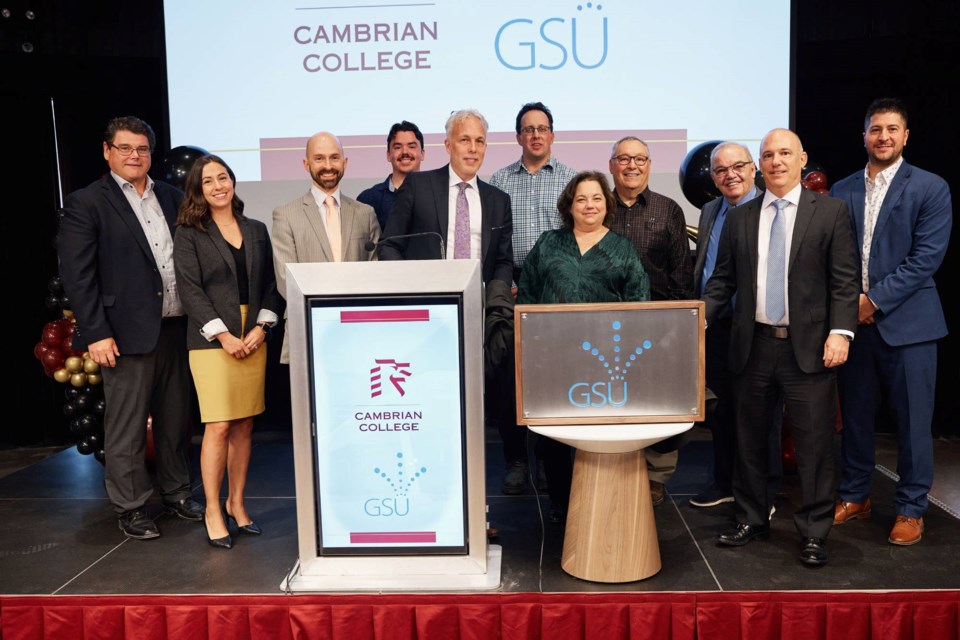Cambrian College is celebrating another $100,000 donation toward its battery electric vehicle (BEV) lab, which is currently under construction.
On October 19, the Sudbury school announced the funds are being provided by Greater Sudbury Utilities (GSU), the city-owned utility provider.
The funds are expected to help with the completion of the building and the purchase of equipment to outfit the new lab, which will host the GSU Engineering Workshop.
“We are in the beginning stages of a great energy transition,” said Frank Kallonen, GSU’s president and CEO, in a news release from the school.
“This lab will help us understand the impacts of load increases so that we can develop optimal solutions that provide the services customers need at the lowest possible cost.”
According to the school, research and activities expected to take place at the lab will help support the city’s Community Energy and Emissions Plan — particularly in the area of low-carbon transportation and local clean energy generation — whose goal is to reduce greenhouse gas emissions in the city by 1.2 million tonnes by 2050.
When complete, the $2.8-million BEV lab will encompass 5,600 square feet of space where researchers and mining industry partners will work together to speed up the development of vehicle technology and performance testing.
The school will also train technicians in battery-electric vehicle maintenance techniques.
Cambrian struck a partnership in 2021 with vehicle manufacturer MacLean Engineering, which will allow students to gain practical experience by working in MacLeans’ underground test site in Lively.
GSU’s contribution is the latest in a number of donations to the project since it was announced. They include:
- $1 million from the Canada Foundation for Innovation
- $350,000 from Glencore Sudbury INO
- $250,000 from the Greater Sudbury Development Corp.
- $150,000 from TD; and
- $50,000 from BESTECH.
In addition, vehicle manufacturer Sandvik donated a battery-electric scooptram, complete with a battery pack assembly, a charger, and four battery modules to help with student training.




